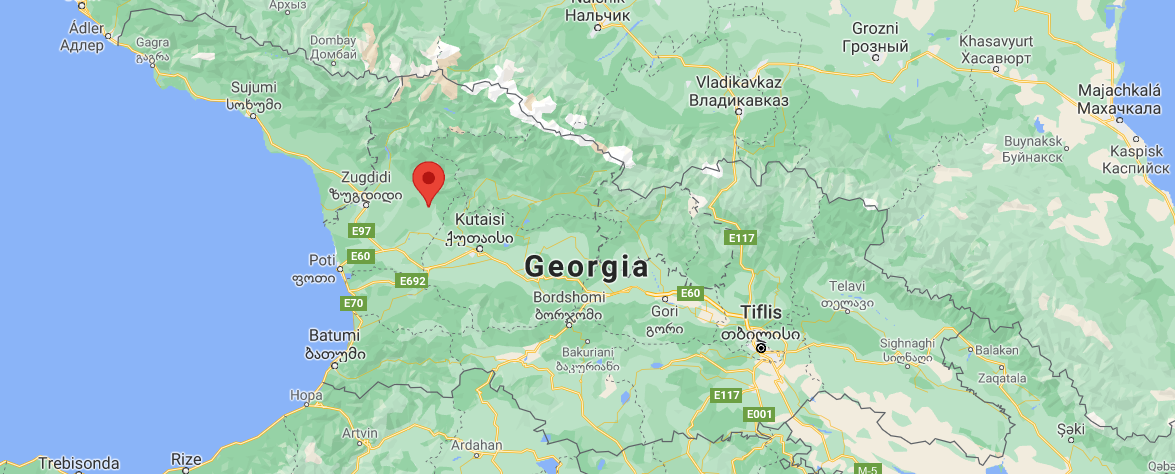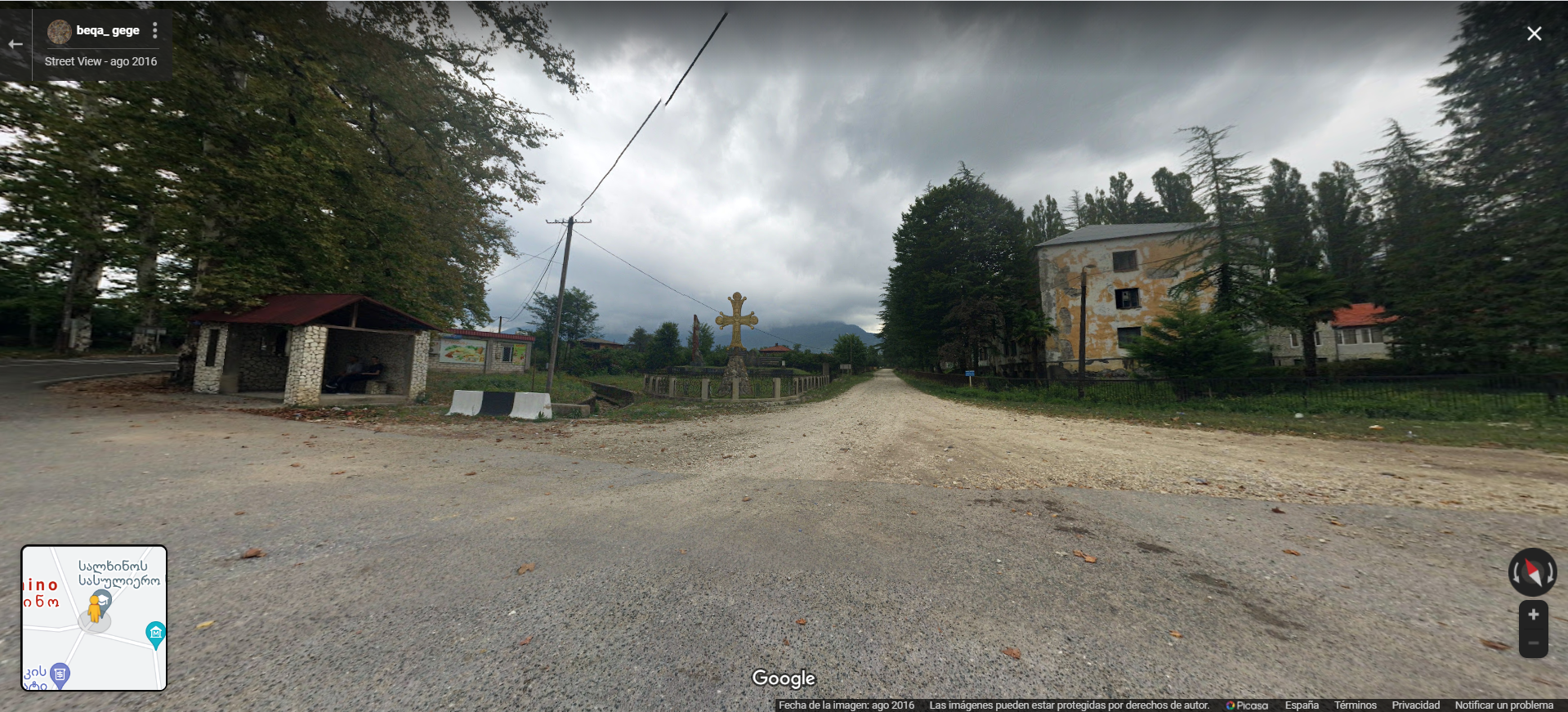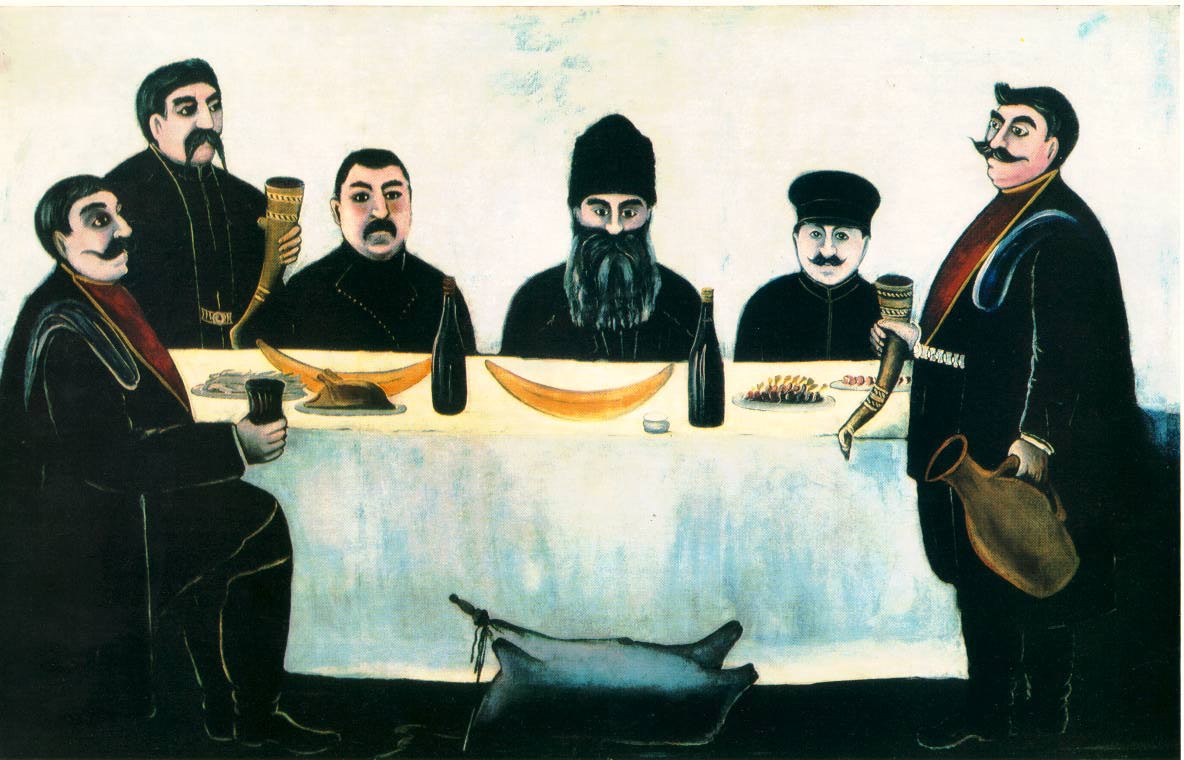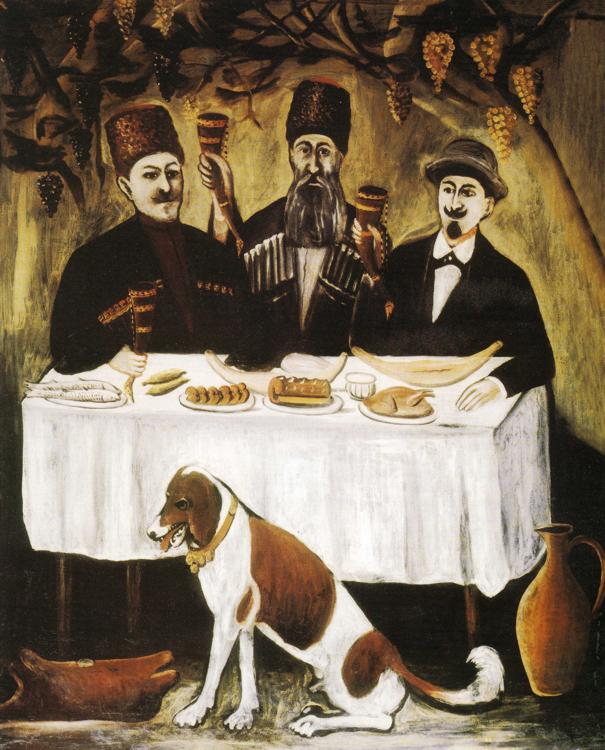Shabbat is almost here
And today we will travel to Georgia to experience a keipi, a generous feast with Itzhak JinJihashvili, Lova Bachakashvili and a group of very happy friends

Hello! How are you? I hope well! Last Sunday I had my first dose of the vaccine and the second one will be on day 18th. During this time I am missing the kind of moments that the video I am sharing at the bottom shows: a moment with friends, sharing food, drinks and music, touching each others, encouraging the performers… who perform just for the joy. It is not a show, it is just a moment of communion. I have the luck of having this kind of people in my life and I can tell you that our parties are not very different than this one in Georgia. We just drink less vodka! ?
I found this wonderful recording the last night, after many hours searching from some music from the Albanese Jews…
| Share the joy of music and learning with your beloved ones. Share MBS. Thank you in advance. |
| Share this with a friend, right from here |
About Itzhak JinJihashvili and Lova Bachakashvili
What can I tell you about these men? The truth is that I have found only videos, no info about them. Itzhak is the singer. In other videos, he plays the doli (drum). For instance, here. I think they were settled in Israel at the time of the recording. The other man, Lova, has many videos in youtube too. This one is said to be in a bar mitzvah in Israel in 1988. They seem to have had a band, the Ansambli Salxino:
If you search for Ansamble Salxino in google, you will reach a Facebook page. That is not Ansamble, but, what is Salxino? This is Salxino:

And this ? picture is from the user beqa_ gege in Google maps:

What is a “keipi“?
A keipi is a generous feast. It is a tradition that celebrates enjoyment through food and drink and song. This may seem like a feast in many parts of the world. Let’s see what makes a Georgian keipi special. According to Stephen F. Jones in Old Ghosts and New Chains. Ethnicity and Memory in the Georgian Republic (included in Memory, History and Opposition: Under State Socialism, edited by Rubie S. Watson):
“Toasting, which dominates the keipi, is suffused with themes of genealogy and the glories of Georgian history. The keipi is a conduit for unofficial history and Georgian national mythology. It is a symbol of the extravagant Georgian personality, which contradicts the Soviet ideal of sobriety and self-discipline. It touches on every aspect of Georgian culture, from song and poetry to ancestor worship and the country’s natural beauty. Song, which is an especially rich source of Georgian memory, is central, as it is in Lithuania, to both informal and formal occasions. Polyphonic and a cappella, the songs require participation by a group, but no instruments, so they can be sung wherever and whenever Georgians gather. Despite a male choral tradition, the pervasive popular musical culture in Georgia encourages both sexes to memorize the songs. The songs are rarely about specific events but are infused with a patriotic lyricism and symbolism recalling heroes and places and with allusions that remind Georgians of their uniqueness. Often, songs are settings for poems by nationalistic writers. Invariably, the keipi is interspersed with songs familiar to all at the table.”
Not all of this corresponds exactly to the video we are going to see, as in our video there are instruments, perhaps the concept has been broadened to include a banquet with music in general, but in any case it allows us to understand the relevance of this tradition in the maintenance of a Georgian cultural identity.
These ? gentlemen are about to make a toast in their keipi. This is a picture by Niko Pirosmani. It is of public domain and I got it from here.

In Sharing the same blood – culture and cuisine in the Republic of Georgia, (available here) Florian Muehlfried explains, about the “sheer number of restaurants, cafés and bars all over the Georgian capital of Tbilisi” that:
“The temptation here would be to assume that eating and especially drinking are a way of escaping, or compensating for, the harshness of everyday living. The questions are: why are these activities so closely – not to say necessarily – related to socialising and why do they commonly take place outside the home? And why are they usually so tightly codified? With these questions in mind, it is useful to take a closer look at social activity in restaurants, bars and cafés in Tbilisi. Three forms of socializing may be identified: banqueting, beer-drinking and tea-drinking, each one associated with a particular set of dishes.”

“Eating is a more or less informal aspect of Georgian banqueting (supra) unlike drinking which is strictly formal and begins with a toast that gives the proceedings character, structure and meaning. The toasts are proposed and presented by the toastmaster (tamada). […] In addition to being an expert on supra traditions, the tamada must have excellent rhetorical skills.”
“Some toasts reinforce national values (toasts to the motherland, of course, but also, more subtly, toasts to culture, song and history), gender identity (particularly the obligatory toast to women), family values and peer group identity.”
“The consumption of alcohol at a Georgian banquet is necessarily related to toasting. […] Many Georgians believe that wine originated in Georgia and that, as shown by Georgian culture over the ages, it has long played a key role in Georgian identity. They regard wine as a metaphor for Georgian blood and those who share wine at a supra as virtual kinsmen.”
.
Ah, my friend, this is the meaning in the case of our selected video!
The last reference: Excess at the banquet? The case of the Georgian supra (available here), by Gilles Fumey, explains that in the keipi:
.“Dishes are spread out all over the table and in Svanetia (a part of western Georgia) a finely set table the plates must overlap so as not to allow the tablecloth to show through. Hence the banquet’s slow pace. This slowness controls the excess of food and beverage to create a tasteful, ritual inebriation that is a far cry from drunkenness and intoxication, which are severely condemned.
Consequently, those who enjoy wine and its related sociability jump at any occasion to turn a meal into a banquet. Nevertheless, drinking also imposes the duty of proposing toasts, which can last a long time. Those who like chatting also like banquets, which nevertheless trap the most talkative guests into following rules of etiquette according to which enjoying the sound of one’s own voice and imposing it on others is not acceptable.”
Again, another similarity with Spanish culture. We tend to eat when we drink. Hence the famous “tapas“. The tapa, a small portion of food, is given to you for free by the waiter when you order a drink. This is the case in most of Spain. The idea is that accompanying alcohol with some food makes it feel better and makes it harder to get drunk and lose control.
About the recording
It’s time to enjoy the music:
Click the picture to listen to the potpurri of Baiat’s and Blatnoi’s songs:
| Share this with a friend, right from here |
